Song Kai shouted "technology is king & grasp training", how to achieve Chinese youth training?
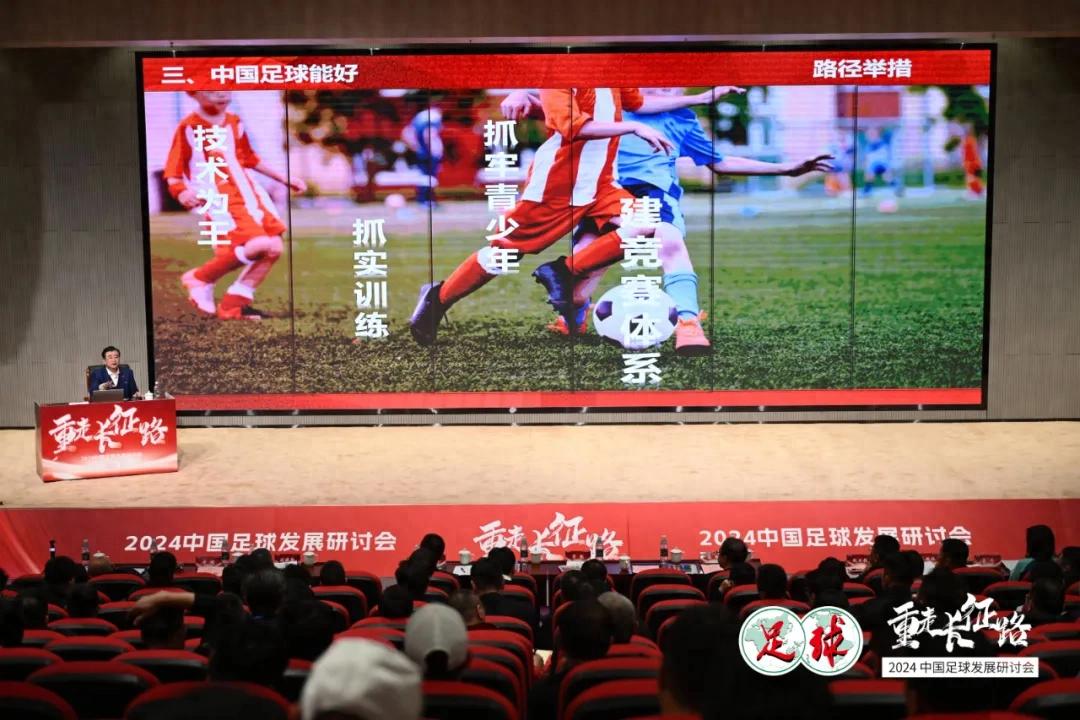
Chief reporter Chen Yong reports The topic of the "Re-taking the Long March Road - 2024 China Football Development Seminar" held in Xi'an this time did not focus on youth football, but the speeches and exchanges of the leaders of the Football Association, the club presidents and the heads of local sports bureaus were inseparable from the youth.
In his speech on "Some Thoughts on the Development of Chinese Football", Song Kai, Chairman of the Chinese Football Association, talked about the six major measures of the Chinese Football Association: technology is king, practical training, grasping young people, building a competition system, promoting the integration of sports and education, and mobilizing local enthusiasm. It is aimed at seven major projects: leading key cities, focusing on elite youth training, grasping national brand leaders, grasping coaches, social football, professional leagues and campus football.
It is not difficult for us to find that the six major initiatives and seven major projects are basically integrated into the three levels of Chinese youth football: first, in terms of system, the development of youth football is based on campus football, elite youth training is promoted, and sports and education integration is the purpose, which is presented through a perfect competition system; In terms of methodology, on the basis of doing a good job in the team of coaches, we should pay close attention to training, and technology is king; Secondly, in terms of protection, the core of key cities is youth football, and professional leagues and social football are also closely related to youth football.
At present, the thinking and contention of Chinese football are more reflected in the methodology, that is, technology is king and practical training, and the two complement each other, and ultimately need to be completed by grasping the coaching team.
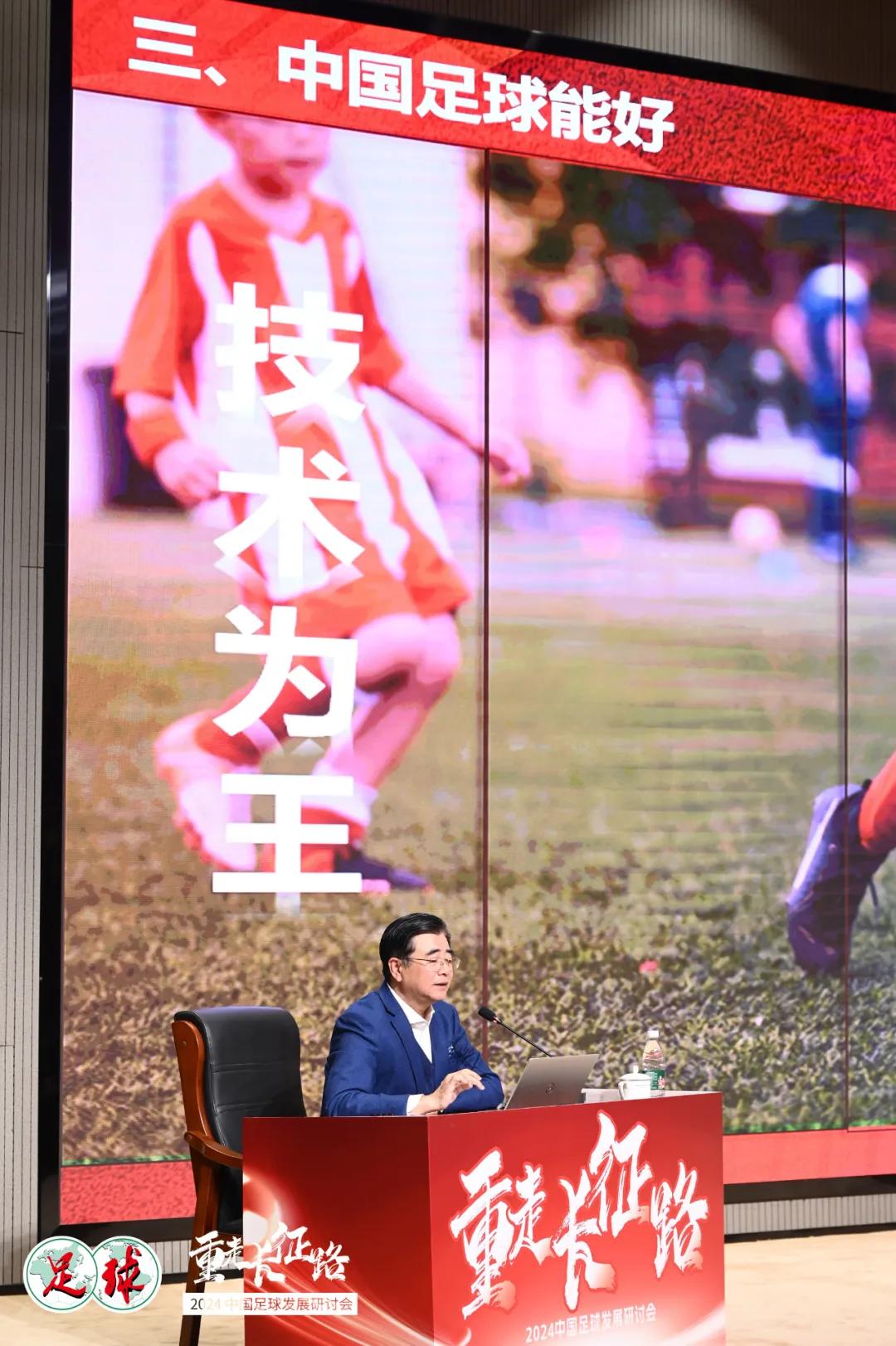

The meaning of "technical" in football is very broad, and it is generally divided into two levels: individual technical ability and overall technical flow play. The former is consensus, the latter has more contention.
The "technology is king" mentioned by Song Kai actually includes these two levels: first of all, he said that the ball can only go the world when the ball is at his feet, Chinese football started with technology, Chinese football has lost its soul, and technology is the soul; Secondly, when he explained the development of English football, he talked about the key point, that is, completely abandon the long ball rush, promote technical football, control the ball and quick counter-attack.
In terms of personal technical ability, in fact, excellent professional youth training or football schools generally attach great importance to it, and Luneng Football School has set up special technical training, including now, Luneng Football School also has a large number of facilities for training technical abilities such as table football and net football.
The difficulty of improving one's technical ability lies in two levels.
Grassroots coaches are actually the weakest link in Chinese football, more precisely, primary school football coaches before the age of 12 generally have their own technical ability is seriously insufficient, not to mention a reasonable and effective training plan, and the current number of social youth training institutions is seriously insufficient, can not bring more protection for campus football. In this case, the effect of technical training is greatly reduced, and if repeated technical training is carried out, it is easy to wear out the enthusiasm of children.
Another embarrassing reality is that the technical ability of European and American players is actually gradually formed in efficient games, but this is something we cannot achieve in the short term. Their training time is actually not long, but their games are very systematic, and more importantly, the weekend and weekly game tradition, European and American young players will consolidate their individual technical ability through systematic games, more precisely, individual technical ability in actual combat.
The technical flow of play at the tactical level is more reflected in the teenagers aged 13 and above, and at this level, there is currently some controversy in China. On the whole, in daily training, it is necessary to improve the comprehensive tactical ability of young players, provide them with diversified and complex tactical scenarios, and help them think and make decisions. As for actual combat, it is necessary to obey and serve the tactical concept, but you can also choose different ways of playing according to the specific situation. In fact, although the current style of play in world football is different, it has the same goal: the pass-and-control style of play has begun to focus on practicality and simplicity, for example, the rapid counter-attacking ability of Japanese football is very good, and the power style of play has also begun to pay more attention to the improvement of the technical level, and the transformation of England is a typical example.
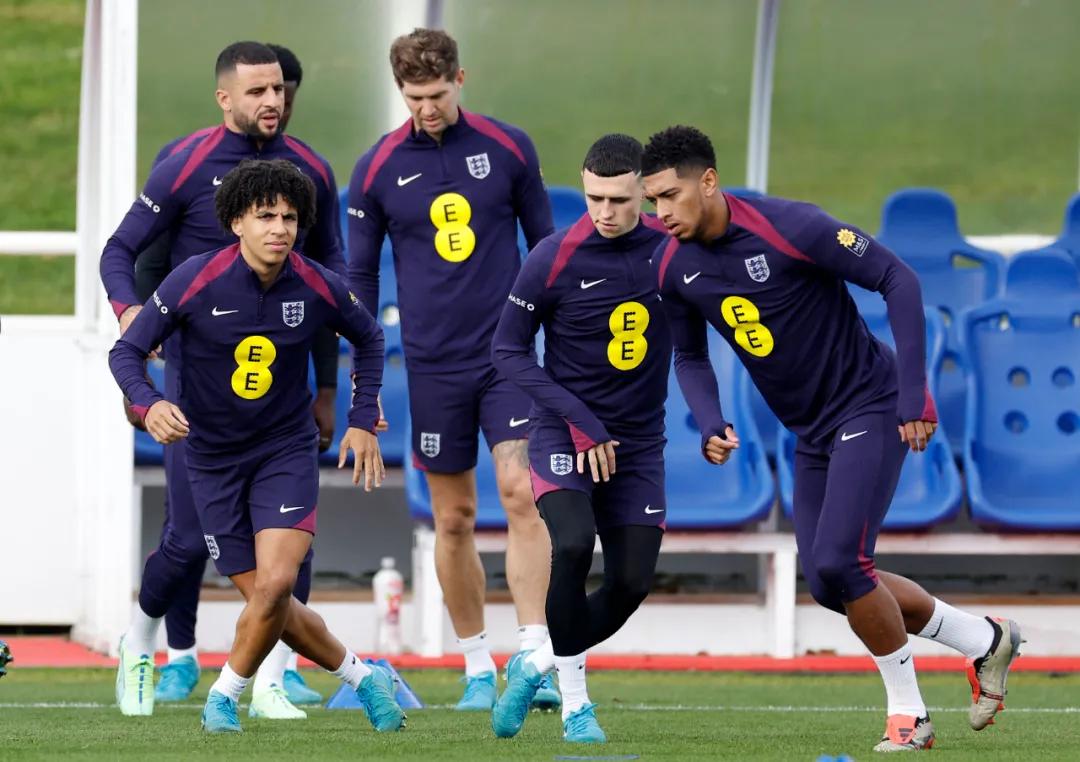

Technical ability training is actually only one part of the training, and other aspects of training include multiple levels of training, such as flexibility training. At the end of 2020, during the reporter's interview in Meizhou Hengpi Football Characteristic Town (Base), the test of Xinghui Youth Academy showed that there were serious problems with the physical flexibility of the players. Coincidentally, the Japanese coach of Meizhou Hakka spent a lot of time training the echelon players of Meizhou Hakka. In addition, physical and strength training is of course an important part of training. A very tragic thing in the development of Chinese football is that we have not only lost the tradition of technology, but also lost both physical strength and strength.
During this seminar, Song Kai proposed the training system of "three from one big and one strong", that is, from the difficult, strict, from the actual combat, to carry out large-scale training and strong recovery. Because the slogan "three from one" was once stigmatized, we can also describe it in modern football terms:
The training system of Chinese football should be based on difficult training content, strict and rigorous training requirements, obey the needs of actual combat, and have a systematic and technology-led support system to carry out high-intensity and large-scale training.
Song Kai gave an interesting example at the seminar: we went abroad to study, and found that the training was short-term but high-intensity, but after coming back, we learned in a short time, but we forgot about the high-intensity. In fact, in the "game" between China's youth training echelons at all levels and foreign coaches, the most "repeated" is the question of training duration and whether to practice or not. Because foreign countries use more competitions to drive training, foreign coaches have a certain "unsuitability" in the training content: translation and other problems reduce the intensity, and the lack of recognition of additional training further reduces the personal ability of young players. After the final reflection, the general consensus is that there should be full communication with foreign coaches, and it is hoped that the other party will take into account the unsystematic and low quality of Chinese youth football competitions, and improve the training time and training quality. In this regard, the concept of Japanese coaches is more in line with China.
One of the key points for coaches to grasp when it comes to training is not to specialise young players too early. This key point is based on a double consideration: the first consideration, football players are first and foremost athletes, and they need to develop comprehensively at multiple levels such as flexibility, endurance, explosiveness, and upper limb strength, which requires multiple sports to drive, more simply, gymnastics is the mother of sports, and track and field is the father of sports. Song Kai asked a question when he was researching the 08 national youth, how many of your players can flip? The answer turned out to be one, Abibullah. This is the embodiment of flexibility, and the lack of upper body strength of Chinese football players is currently more serious. Another important consideration is that boring professional training too early is easy to wear out children's enthusiasm.
But in any case, improving training at this stage is an effective means to make up for the lack of development of youth football in China.
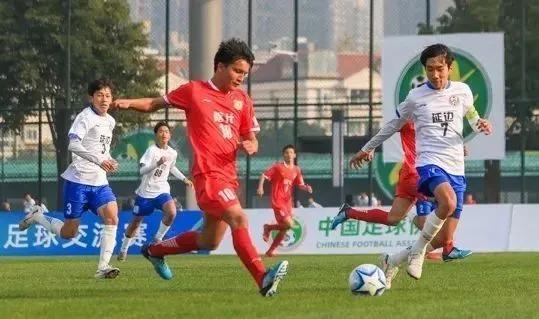

With this in mind, a good coach can play a crucial role: he can motivate the children and help them train more. They will make the training more interesting, in fact, including physical training, in addition to the necessary physical testing, in theory physical training can be completely integrated into training with the ball, like a quick 5-on-5 attack and defense on the whole court.
Chairman Song Kai mentioned at the seminar that retired players should become youth coaches, otherwise they cannot become professional team coaches. This proposal is hotly discussed, which is actually a popular expression, which translates into a more rigorous football language, which should look like this:
The Chinese Football Association aims to promote a "Quality Youth Coach Protection Program", which includes (and of course other youth coaches) to encourage professional players to take up youth football coaching after retirement. The Chinese Football Association will comprehensively track and establish a corresponding database system to provide them with opportunities for growth at multiple levels such as domestic training, overseas exchanges, technical seminars, and national brand recruitment. The Chinese Football Association will also launch an incentive policy for youth coaches based on bonuses.
The Chinese Football Association suggests that coaches of professional clubs must have corresponding youth coach experience, which represents a more comprehensive understanding of football, richer practice, and a stronger sense of responsibility. This is an encouraged, not mandatory, policy.
The Chinese Football Association has decided that the coaches of the youth national teams at all levels under the Chinese Football Association, as well as the coaches of the national training camp, must have no less than the corresponding years of youth football coaching experience in the future.


Referring to the successful experience of Japanese football, a child who has embarked on the path of football, theoretically, we want to see the growth experience of:
3-5 years old Interest development and athletic development. In the kindergarten, I was exposed to systematic sports training, including football, and gradually developed various athletic abilities of the body, and cultivated a love for football.
6-8 years old Soccer training and multi-sport training. Under the guidance of a patient, responsible and well-trained coach at school, he began formal football training, but he always maintained his love for basketball, track and field and basic gymnastics such as side flips. During this period, they began to participate in corresponding interest competitions and class competitions.
8-12 years old School + Institution, Technology + Competition. At the same time as the school conducts comprehensive sports and football training, it begins to receive training from excellent amateur youth training institutions, which have more perfect coach configuration and more scientific and professional training content, especially excellent special technical training ability. In terms of the competition system, he began to systematically play campus football competitions, including class leagues, midweek and weekly home and away school football leagues, and played under the attention of hundreds of students. At the same time, follow the school or youth training institution to participate in the corresponding youth competitions on the weekend. The whole competition system is reasonable and sound, there are games every week, but there is not too much burden.
12-14 years old Professional direction, tactics + competition. At this time, he gained the attention of the professional echelon, began to follow the social youth training institutions or professional echelons, participated in the home and away games in the city, and began to participate in more national competitions, and at the same time began to enter the national training camp and receive corresponding, more professional and systematic training. Theoretically, players should not opt for the concentration mode until they have completed the nine-year compulsory education. At this stage, the proportion of tactical content he received gradually increased, but technical training still accounted for a large proportion. At this stage, his coach is extremely strict with him, and the basic training continues.
After the age of 15 Well-rounded, high-quality competition. If he continues to choose the campus football mode, there will be countless promotion channels waiting for him. If you choose the elite echelon mode, what awaits him will be a very systematic home and away matches, combined with the national finals of the Chinese Football Youth League, and a higher quality U-series league, including related events with a very well-designed sports system with a well-designed schedule and calendar. The whole tournament system is well designed, except for a small number of tournament games, basically an average rhythm of one game a week, and at least 30 of his 50 or so races per year are highly competitive and high-quality competitions. At this stage, technical training is still a very important item, but physical fitness and strength training is gradually increasing, which needs to be guaranteed through good technology to ensure the health of the body.
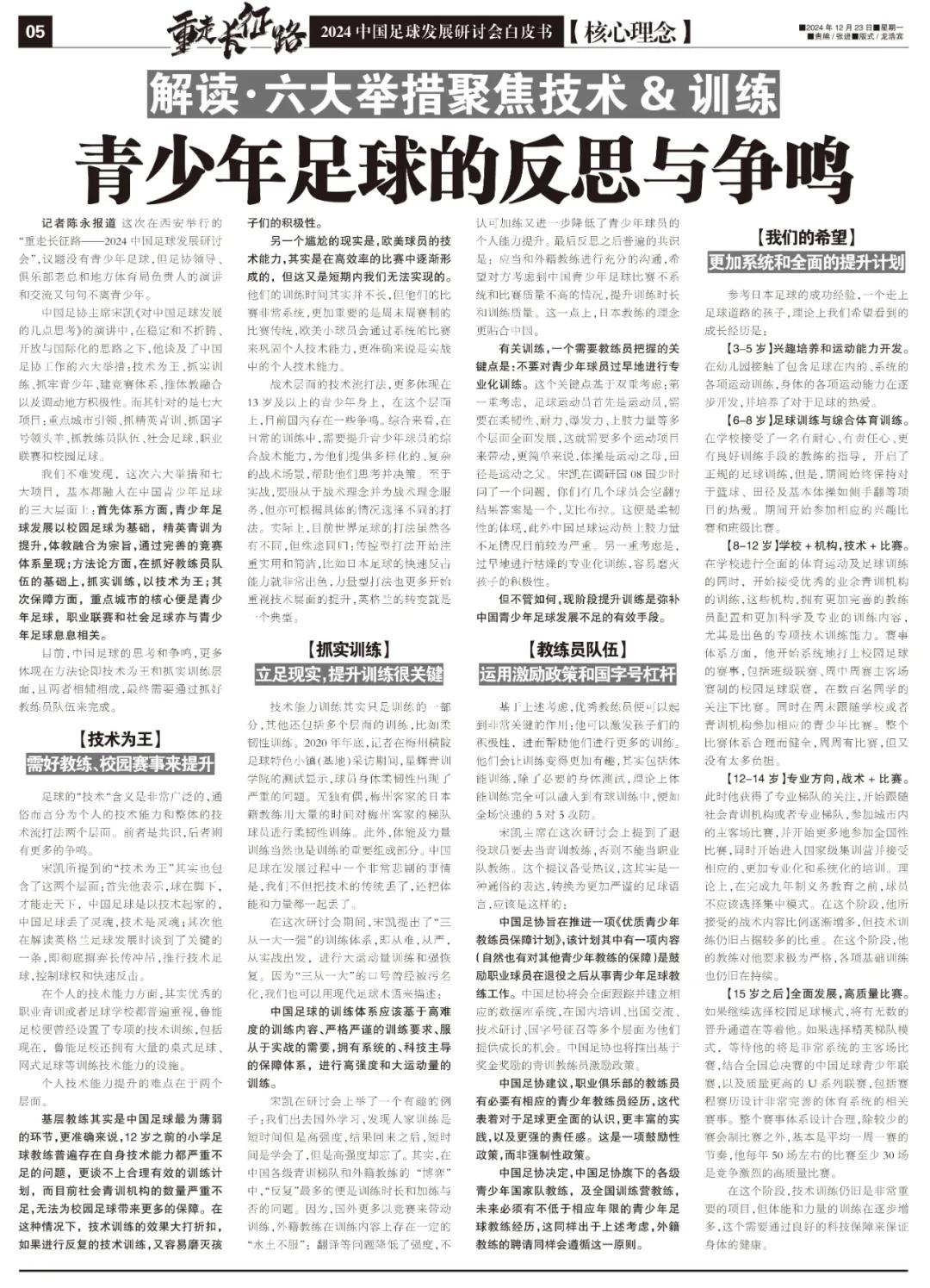


Wonderfulshortvideo
User PlaymakerHub has posted a video.








 Links
Links
 Contact
Contact
 App
App


